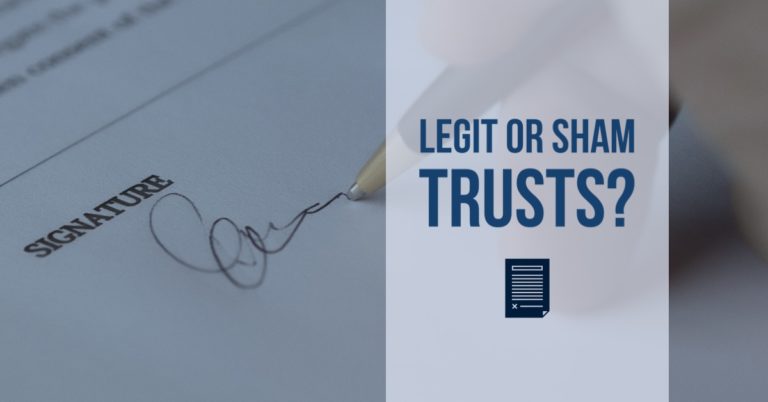Natural disasters can wreak havoc on your life and finances. With mudslides, landslides, severe storms, and tornadoes already happening this year, it’s important to be prepared.
The IRS recently shared some tips on how to keep your personal tax and financial information safe during natural disasters. It’s also important to point out that your accounting team can help you prepare and recover from a disaster. Get ready with a disaster-preparedness plan.
Steps to Safeguard Your Finances
Keep Key Documents Safe; Make Extra Copies
Good record-keeping can determine how resilient an individual or business is in the event of a disaster.
Store original documents inside a waterproof container in a safe space, including:
- Tax returns
- Social Security cards
- Birth certificates
- Deeds
Also, it is wise to make copies of these important documents and store them in a secondary location, such as a safe deposit box or with a trusted person residing in a different area.
Many people also store copies of key documents with their accounting team as part of their disaster-preparedness plan.
For added convenience, consider storing scanned documents on a flash drive.
Create a Record of Valuables and Equipment
Be prepared: To support insurance claims or tax benefits after a disaster, document all your property, especially high-value items.
You can create a simple asset list accompanied by current photos or videos.
Your accounting firm can help you develop an emergency preparedness plan and document your belongings.
In addition, the IRS provides disaster loss workbooks to help individuals and businesses make comprehensive lists of their belongings or equipment (see IRS resources at the end of the article).
Reconstructing Records
Reconstructing or replacing records may be necessary for tax purposes, federal assistance claims, or insurance reimbursement. The accuracy of loss estimation can impact the availability of loan and grant money. Accountants can help their clients reconstruct records and gather necessary documentation.
Tax Credits and Insurance Claims
Following a disaster, you may find the need to file insurance claims and apply for tax credits. Many tools are available to guide you. Remember, if you’re overwhelmed or don’t know what to do, reach out to your accountant.
Your accounting firm can help you find out if you’re eligible for tax credits or other assistance. In many cases, you’ll need to show evidence of loss, insurance coverage, and more.
For insurance claims, business owners may need help understanding and navigating their policies. This can include negotiating with insurers to release cash quickly to businesses for cashflow purposes.
Accountants can also help business owners estimate profit loss due to the disaster. To ensure fair insurance reimbursement, businesses may need to provide additional evidence and financial information.
Employers: Check Fiduciary Bonds
Employers who use payroll service providers should ensure that their provider has a fiduciary bond in place. This bond can protect the employer in case of default by the payroll service provider. The IRS advises employers to carefully choose their payroll service providers to mitigate potential risks.
Tax Relief After a Disaster
Following a major disaster or emergency measures declaration by FEMA, the IRS may postpone specific tax filing and payment deadlines for taxpayers residing or conducting business in affected counties.
Taxpayers in the covered disaster area are automatically identified by the IRS, and the filing and payment relief is applied accordingly.
Don’t wait until it’s too late
Take proactive steps to prepare for natural disasters now, safeguarding both your finances and your future. By following these tips, you can minimize the impact of a disaster on your personal tax and financial information.
Remember, a taxpayer’s accountant can play a crucial role in guiding you through the process and providing valuable assistance in protecting your financial well-being. Make it a priority to create an emergency plan with your accounting team.
Stay prepared and stay protected.
Resources
- Publication 547, Casualties, Disasters, and Thefts
- Publication 583, Starting a Business and Keeping Records
- Ready.gov
- IRS.gov
In addition, taxpayers who have lost some or all of their records during a disaster can visit the IRS’s Reconstructing Records webpage.
More Information
If you have questions, contact us to discuss your situation.
To check out our other articles on business topics, click here.

David Smith
David Smith helps businesses and individuals develop smart business practices for tax and accounting advantages as the president of Smith Patrick CPAs. He is involved in the cannabis industry in Missouri through MoCannTrade and other organizations, helping cannabis operators with their tax and accounting needs.
About Smith Patrick CPAs
Smith Patrick CPAs is a boutique, St. Louis-based, CPA firm dedicated to providing personal guidance on taxes, investment advice and financial service to forward-thinking businesses and financially active individuals. For over 30 years, our firm has focused on providing excellent service to business owners and high-net worth families across the country. Investment Advisory Services are offered through Wealth Management, LLC, a Registered Investment Advisor.





